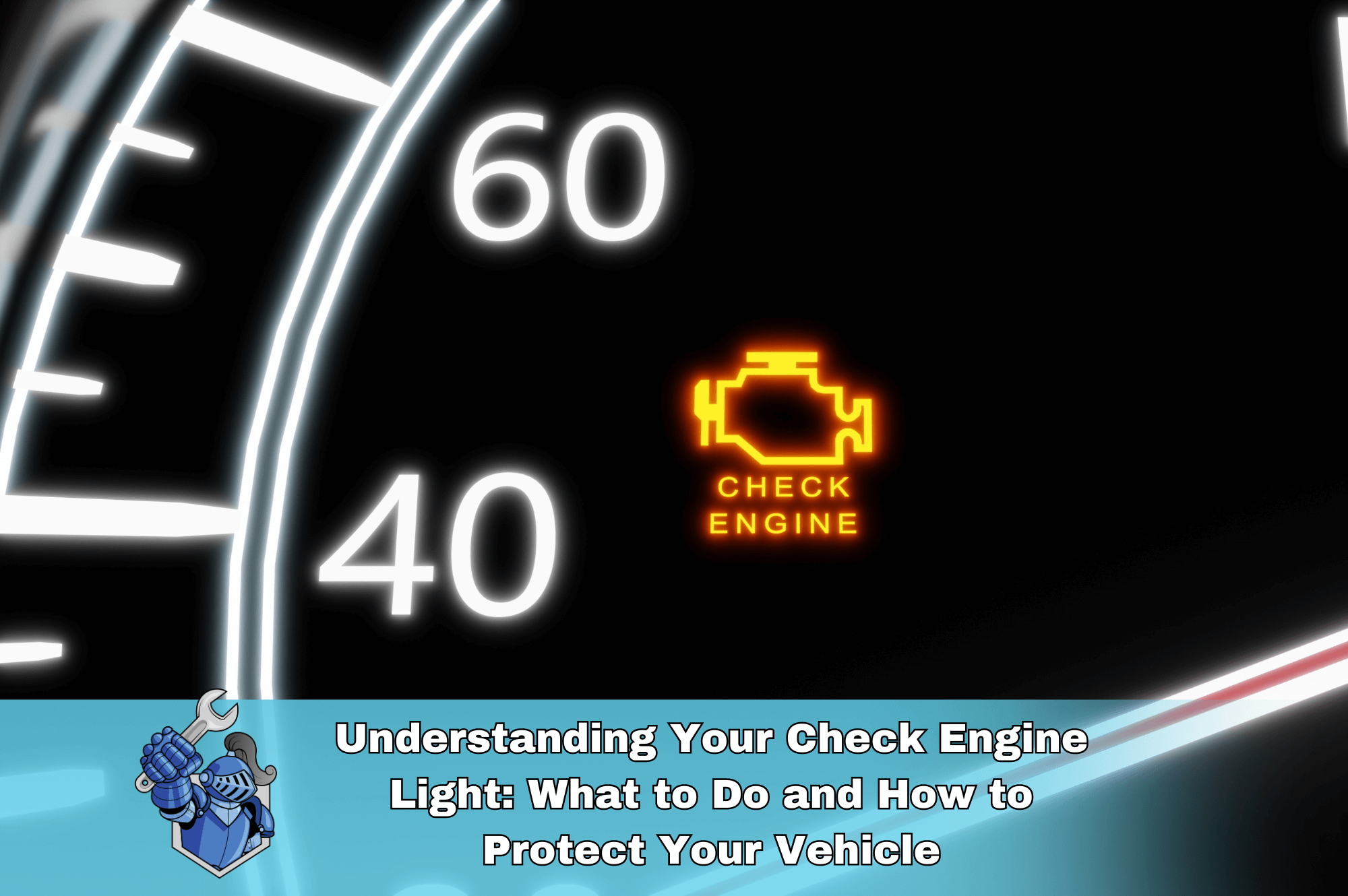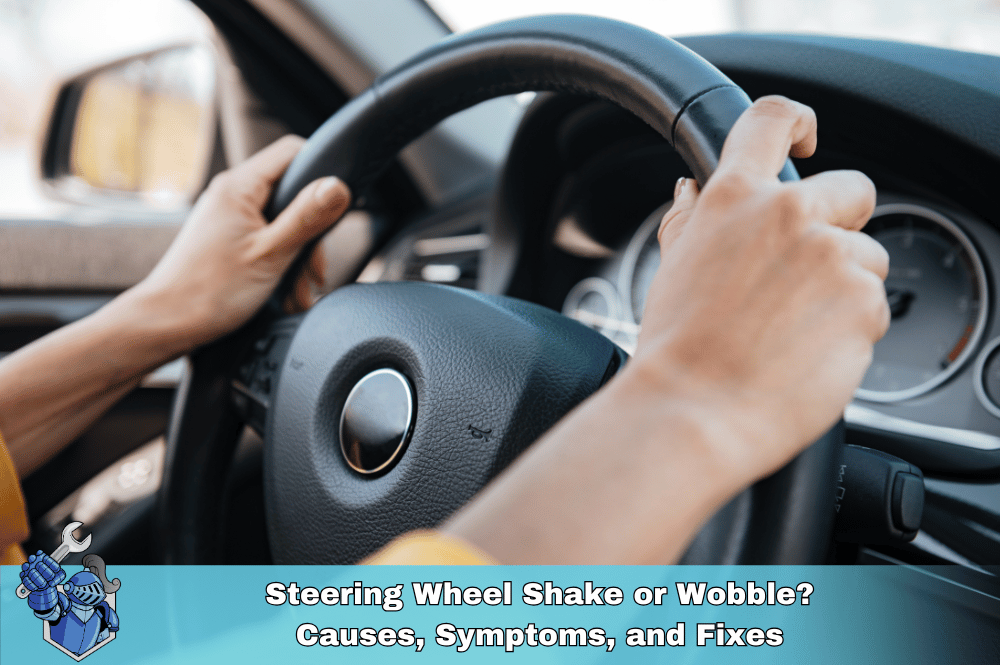The check engine light (CEL) is one of the most important warning indicators on your vehicle's dashboard. When it illuminates, it signifies that something is wrong with your car or truck's engine or emissions system. Ignoring this warning can lead to severe damage and costly repairs. This comprehensive guide will help you understand what to do when your check engine light comes on, how to diagnose the problem, and how protecting your vehicle with a service contract can save you from unexpected expenses.
What is the Check Engine Light?
The check engine light is part of your vehicle's onboard diagnostics (OBD) system. When the car's computer detects an issue that affects the emissions control system, the check engine light is triggered. This light can indicate various problems, ranging from minor issues like a loose gas cap to more serious concerns such as a malfunctioning catalytic converter.
What to Do When Your Check Engine Light Comes On
1. Don't Panic
A glowing check engine light doesn't always mean an emergency. However, it's essential to address the issue promptly to avoid potential damage.
2. Check for Immediate Issues
First, check if your gas cap is loose. A loose or damaged gas cap can cause the check engine light to come on. Tighten it properly and see if the light turns off after a few trips.
3. Observe the Light's Behavior
- Steady Light: If the light is steady, it indicates a non-emergency issue. You should still have it checked, but it's not an immediate threat.
- Flashing Light: A flashing check engine light signifies a severe problem that needs immediate attention. It usually indicates a misfire that can damage the catalytic converter.
4. Use an OBD-II Scanner
An OBD-II scanner can read the diagnostic trouble codes (DTCs) stored in your car's computer. These codes can help pinpoint the issue. You can purchase a scanner or visit a mechanic for a diagnostic check.
5. Consult a Professional Mechanic
If you're unable to diagnose or fix the problem yourself, it's best to consult a professional mechanic. They have the tools and expertise to identify and resolve the issue efficiently.
Common Causes of the Check Engine Light
1. Faulty Oxygen Sensor
The oxygen sensor monitors the amount of unburned oxygen in the exhaust. A malfunctioning sensor can lead to poor fuel economy and increased emissions.
2. Loose or Damaged Gas Cap
A loose gas cap can cause fuel vapors to leak, leading to an increase in emissions. This is one of the simplest issues to fix.
3. Catalytic Converter Problems
The catalytic converter reduces harmful emissions by converting carbon monoxide and other harmful gases into less harmful substances. A damaged converter can lead to poor performance and higher emissions.
4. Faulty Spark Plugs or Wires
Worn-out spark plugs or damaged wires can cause misfires, leading to a flashing check engine light. This issue can affect engine performance and fuel economy.
5. Mass Airflow Sensor Issues
The mass airflow sensor measures the amount of air entering the engine to determine how much fuel to inject. A faulty sensor can cause poor fuel efficiency and performance issues.
Preventive Measures to Avoid Check Engine Light Issues
1. Regular Maintenance
Adhering to your vehicle's maintenance schedule is crucial. Regular oil changes, air filter replacements, and timely inspections can prevent many check engine light issues.
2. Use Quality Fuel
Using high-quality fuel can prevent carbon buildup in the engine and emissions system, reducing the risk of triggering the check engine light.
3. Inspect the Gas Cap
Ensure the gas cap is tightly secured after refueling. Replace it if it's damaged or worn out.
4. Monitor Engine Performance
Pay attention to changes in engine performance, fuel economy, and unusual noises. Early detection of issues can prevent more significant problems.
How Protecting Yourself Ahead of Time Keeps Surprise Costs Away
Unexpected repair costs can be a financial burden. Protecting yourself with an extended service contract from NobleQuote can provide peace of mind and financial security. With coverage for major components like the engine, transmission, and emissions system, you can avoid the surprise costs associated with a check engine light issue. Our plans include:
- Comprehensive Coverage: We offer extensive coverage for various vehicle components, ensuring you're protected against unexpected breakdowns.
- Affordable Plans: Choose from a range of plans that suit your budget and needs.
- Fast and Hassle-Free Service: Enjoy prompt service from our network of certified repair facilities.
Visit our Learning Center for more tips and insights on vehicle maintenance and protection.
FAQs
1. What should I do if my check engine light is flashing?
A flashing check engine light indicates a severe problem, such as a misfire, that requires immediate attention. Pull over safely and have your vehicle towed to a mechanic to prevent further damage.
2. Can I drive with the check engine light on?
If the light is steady, you can drive for a short period, but you should have the issue diagnosed and fixed as soon as possible. If the light is flashing, stop driving and seek immediate assistance.
3. How much does it cost to fix a check engine light issue?
The cost can vary widely depending on the problem. Minor issues like a loose gas cap are inexpensive, while more severe issues like a catalytic converter replacement can be costly. An extended service contract can help cover these expenses.
4. Can I reset the check engine light myself?
You can reset the check engine light using an OBD-II scanner, but it's essential to address the underlying issue first. Resetting the light without fixing the problem can lead to further damage.
5. How often should I get my car checked if the check engine light comes on?
You should have your vehicle checked as soon as the check engine light comes on to avoid potential damage and higher repair costs.
Conclusion
The check engine light is a critical warning system that should never be ignored. Understanding its significance and knowing what steps to take can prevent minor issues from becoming major problems. Regular maintenance, quality fuel, and securing your gas cap are simple preventive measures.
Moreover, protecting yourself with an extended service contract from NobleQuote can save you from unexpected repair costs, ensuring total peace of mind. For more valuable information, visit our Learning Center.
For further reading on diagnosing and fixing check engine light issues, you can visit this comprehensive guide and this article on common causes.
By staying informed and proactive, you can keep your vehicle running smoothly and avoid the stress and expense of unexpected repairs.
Suggestions for you
Read MoreLet’s work together
Every week we showcase three charitable organizations that our donations are sent to. Our clients are able to choose which of these three will receive their gift when they add coverage to their vehicle...




